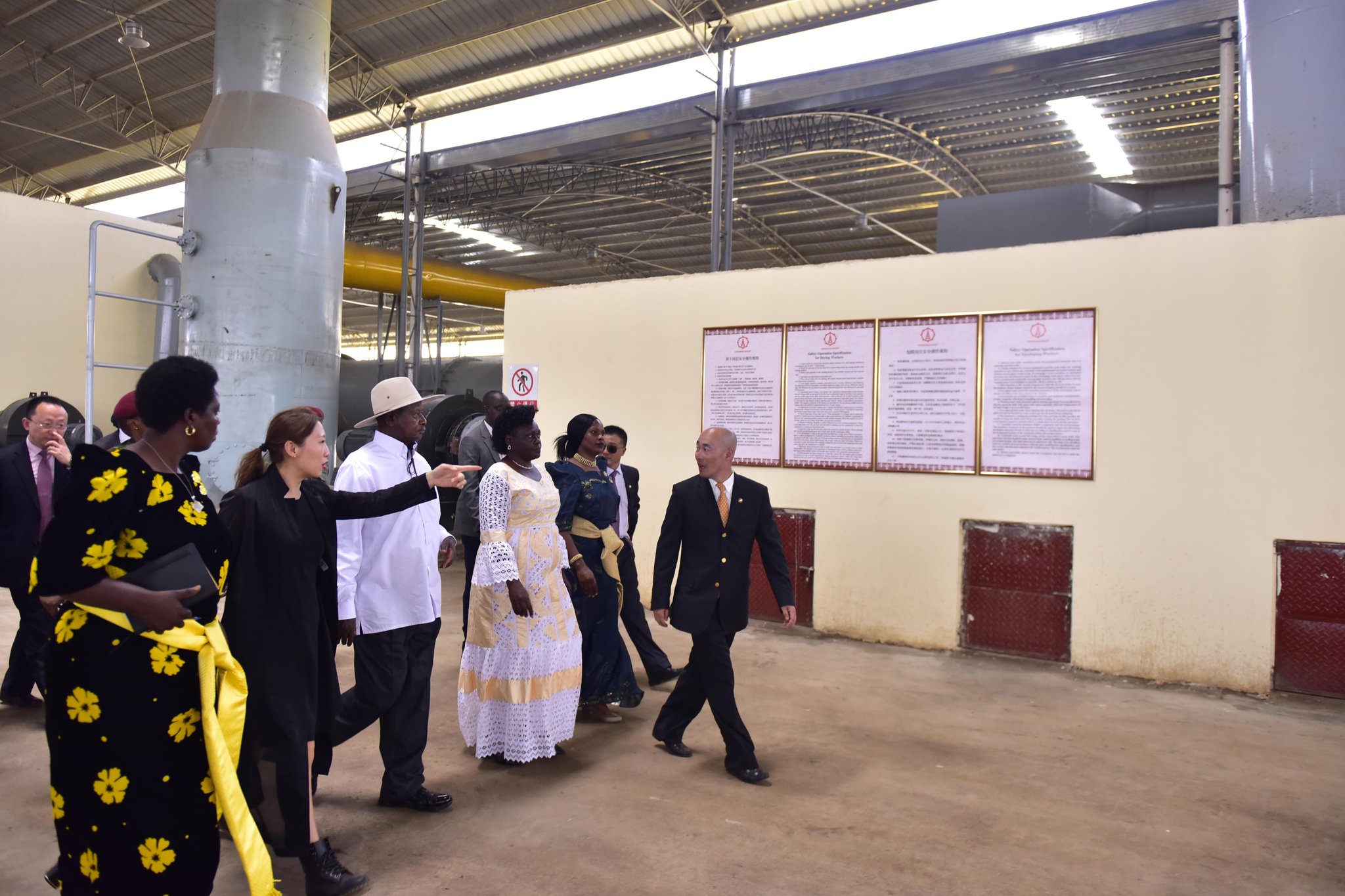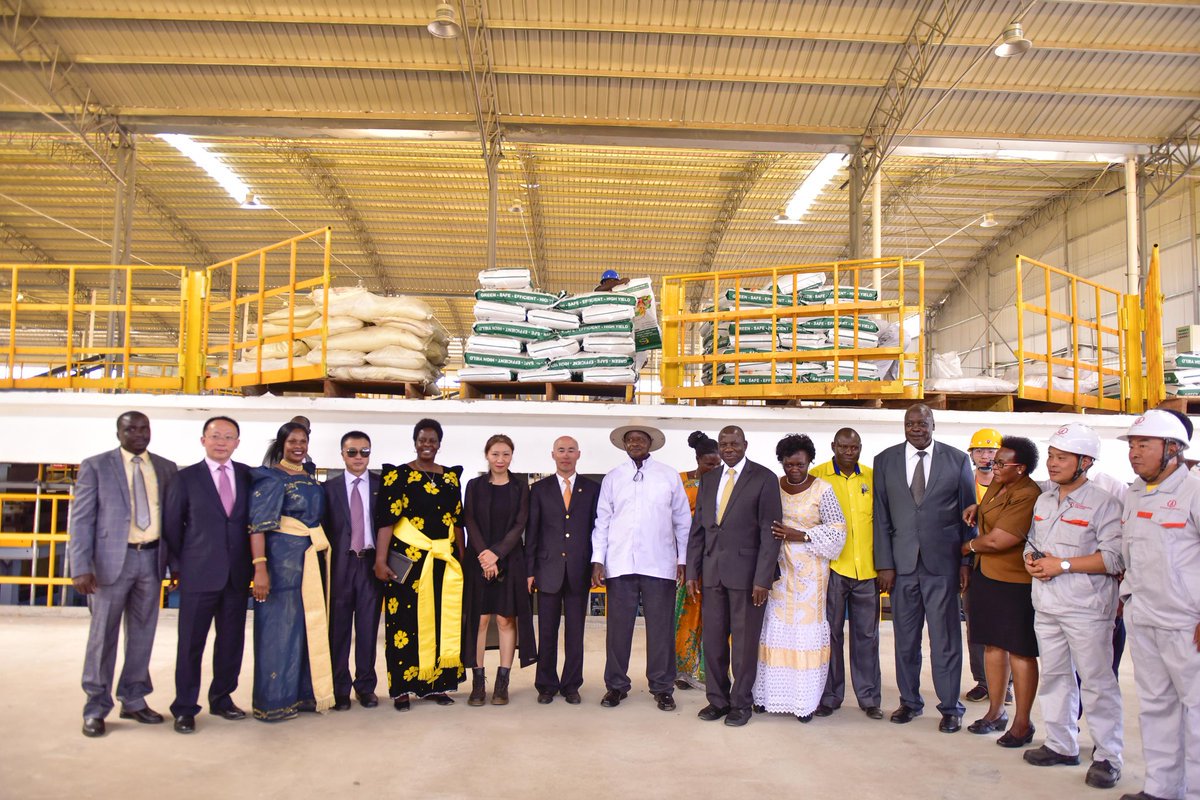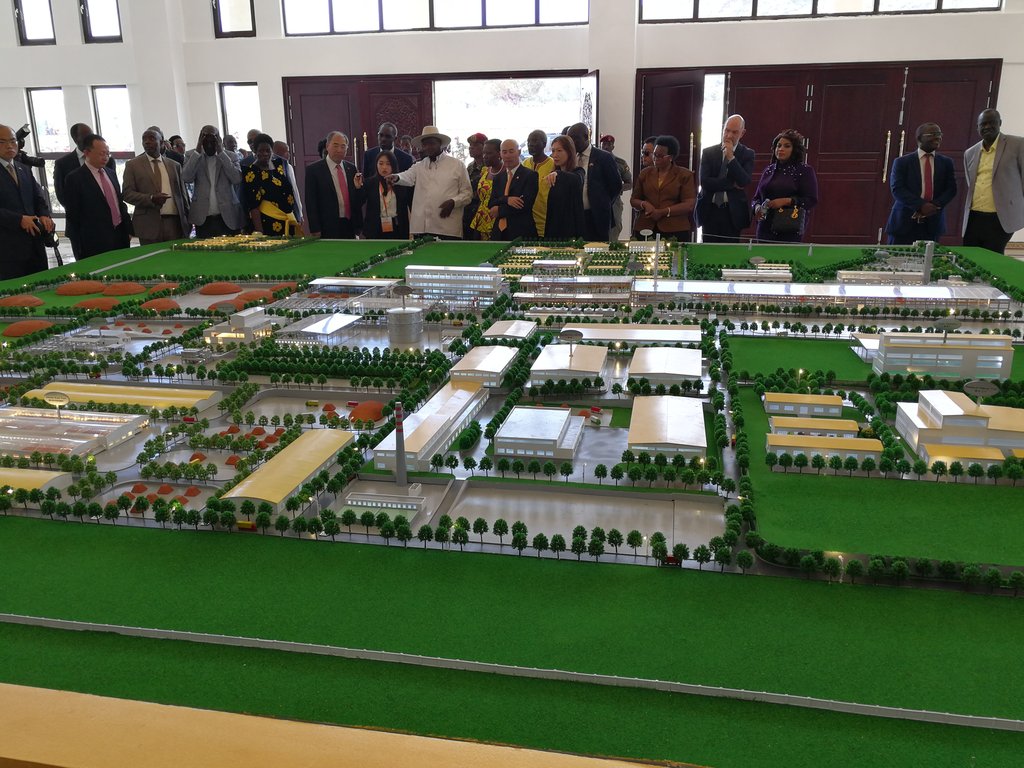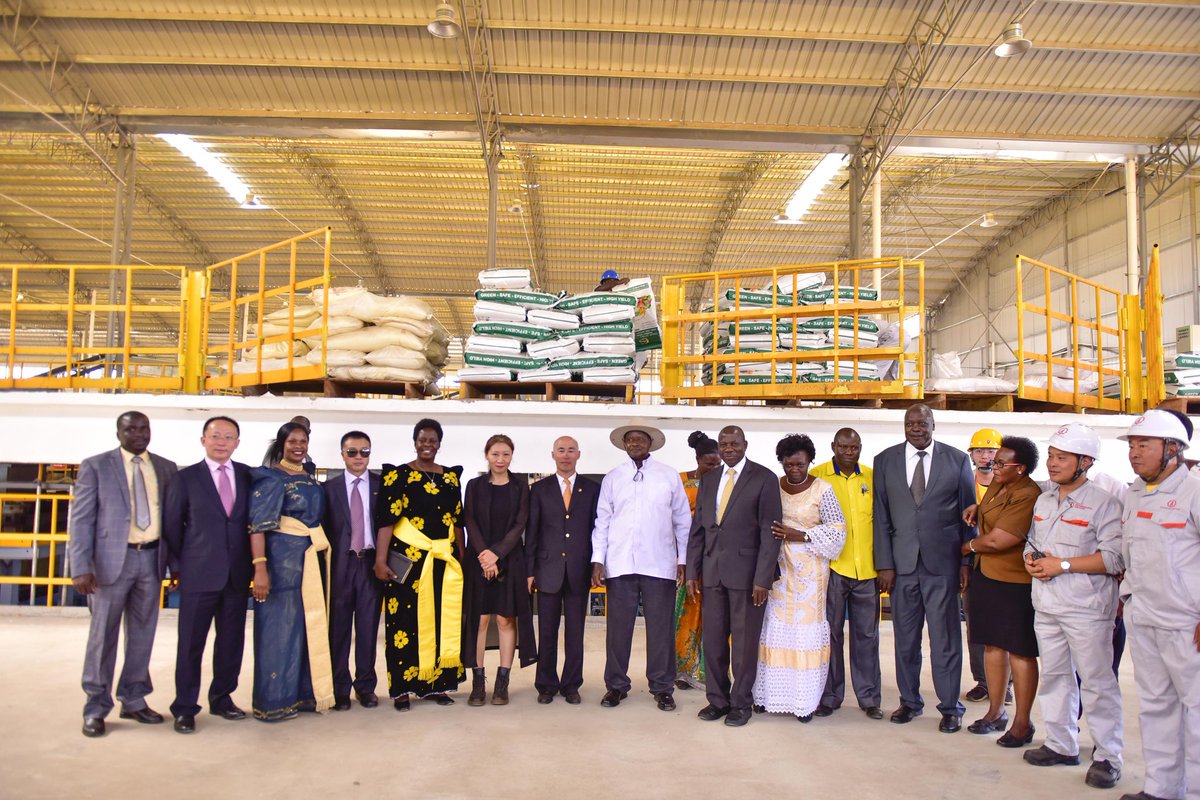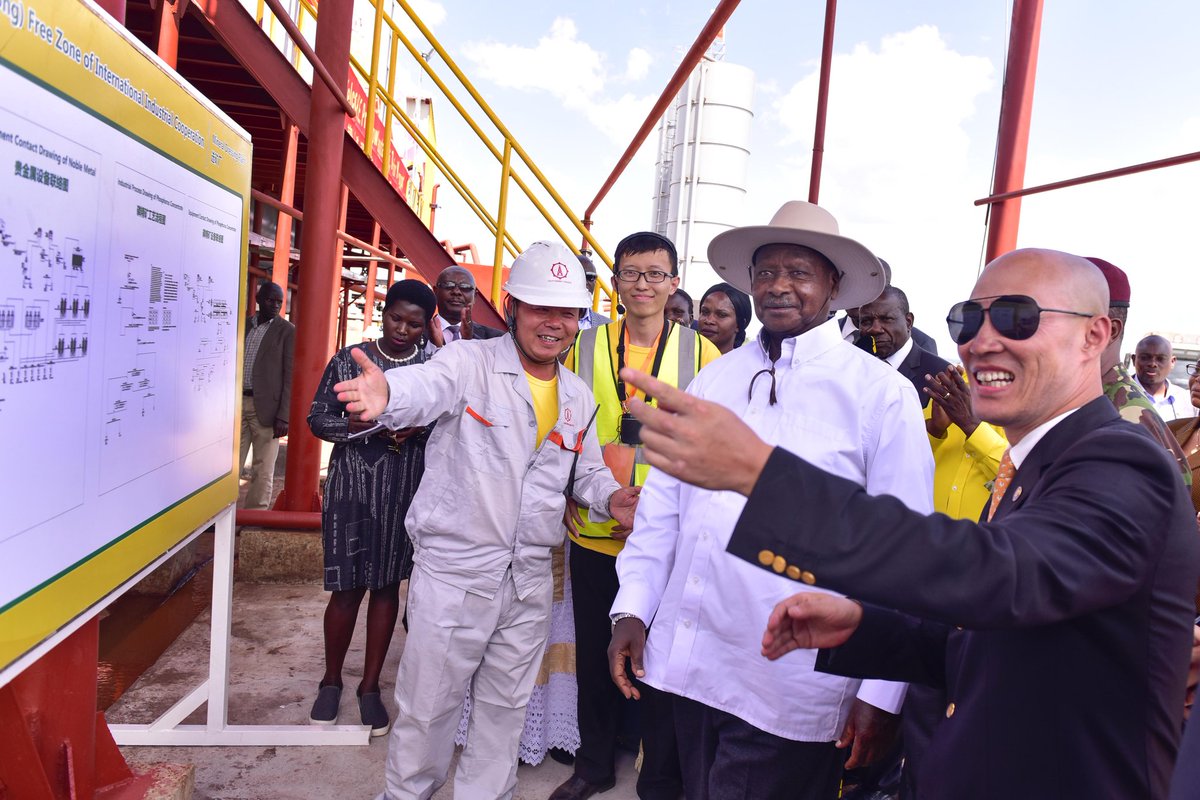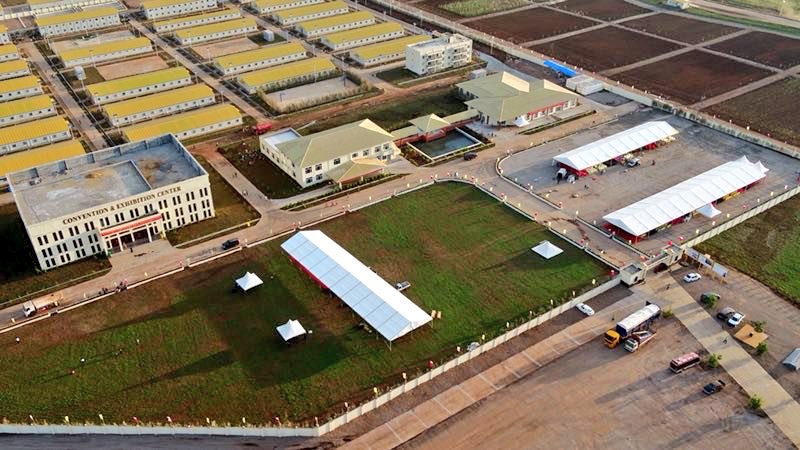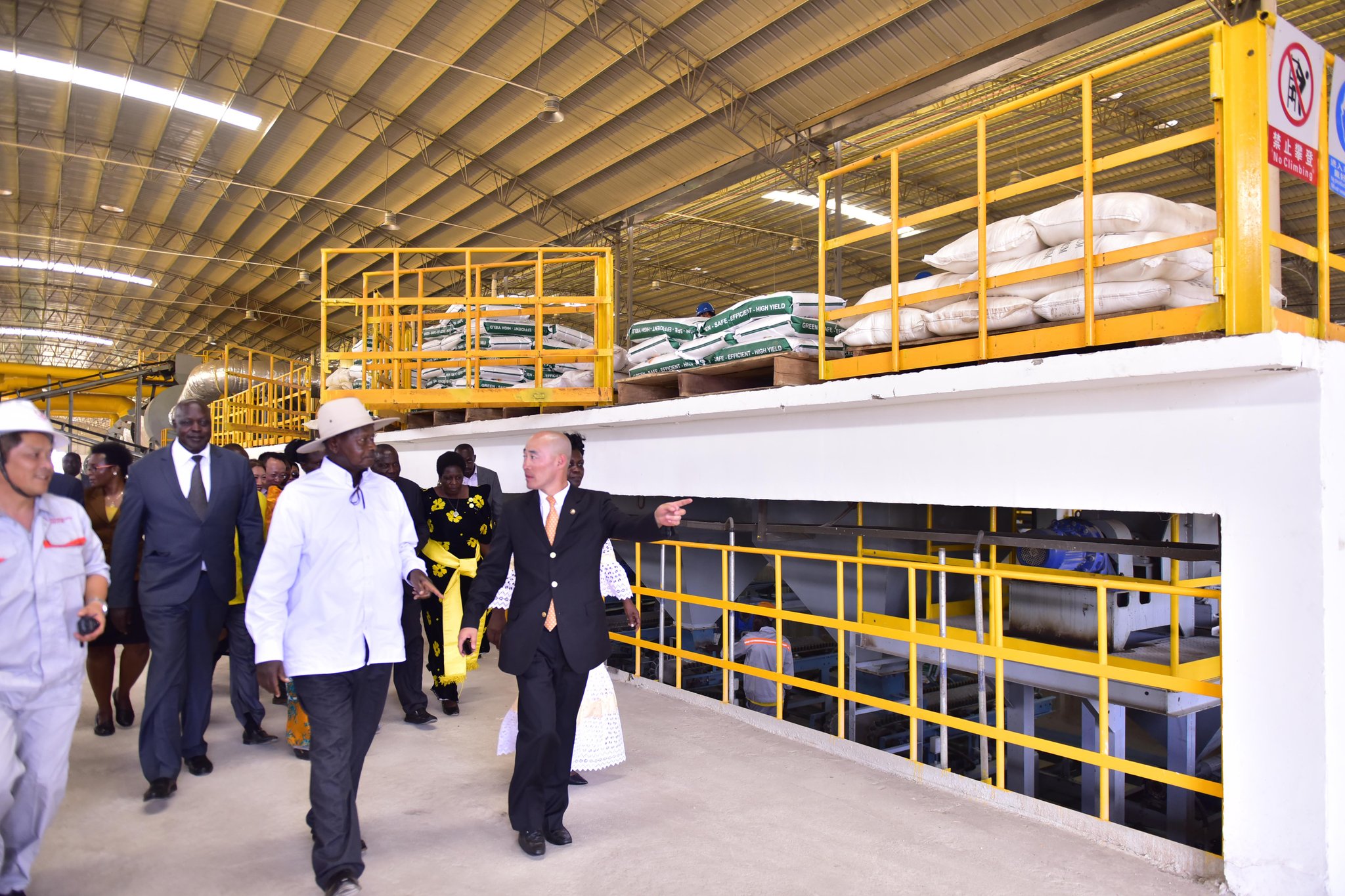President Yoweri Museveni has commissioned the first phase of the Uganda-China Industrial Centre in Sukulu, Tororo district which will produce glass, steel, organic-fertilizers, bricks and cosmetics among other products.
The industry whose investment is estimated at US$ 630 million includes an office living base, mineral dressing plant, phosphate fertilizer plant, unbaked block plant, machine repair centre, and laboratory centre.
It is owned by Chinese firm Guangzhou Dong Song Energy Group and will creating over 2,500 jobs. The industrial park sits on up to 1,600 acres of land.
While speaking during the commissioning ceremony, President Museveni said that the industry will save government revenue by significantly reduce Uganda’s imports of fertilizers, glass and steel.
He said that on average, the country spends US$ 32m on importing fertilizers, US$ 23m on importing glass and US$ 377m on importing steel annually.
“Now these imports will stop. Instead, we shall be exporting to the region,” President Museveni said.
The factories in the Sukulu industrial park will consume 120 megawatts (almost the generation capacity of Owen falls dam) of electricity at full capacity, Museveni revealed. He said that this explains why government must continue investing in building electricity dams.
Museveni added that other planned infrastructure developments such as other hydro electricity dams and the Standard Gauge Railway will further reduce the cost of doing business and make Uganda competitive.
He hailed China for supporting investment in manufacturing and infrastructure in Uganda.
The Sukulu industrial park had for long been stalled by the lack of resources for land compensation on the part of the initial investor, Museveni said, until Chinese financiers considered the project to be commercially viable.
“I gave the site to Madhvani but for a long time, he couldn’t get money because there was a problem of compensating occupants of the land. This needed Shs 40 bn which he didn’t have. Government also couldn’t easily get it so the project stagnated,” Museveni explained.
“When the Chinese came, I told them and they had no problem. I thank the Chinese government for its smart policy where banks give credit to investors to come to Africa and identify commercially viable projects,” he added.
He used the event to appeal to Western powers like Britain to emulate the approach of China regarding investment in Uganda.
The second phase of the Suluku project scheduled for completion by July 2019 will see the following facilities functional; a steel plant, glass plant, ferroalloy plant, tin smelting plant, shea processing factory, humic acid fertilizer, cement fireboard plant, and wood factory.
